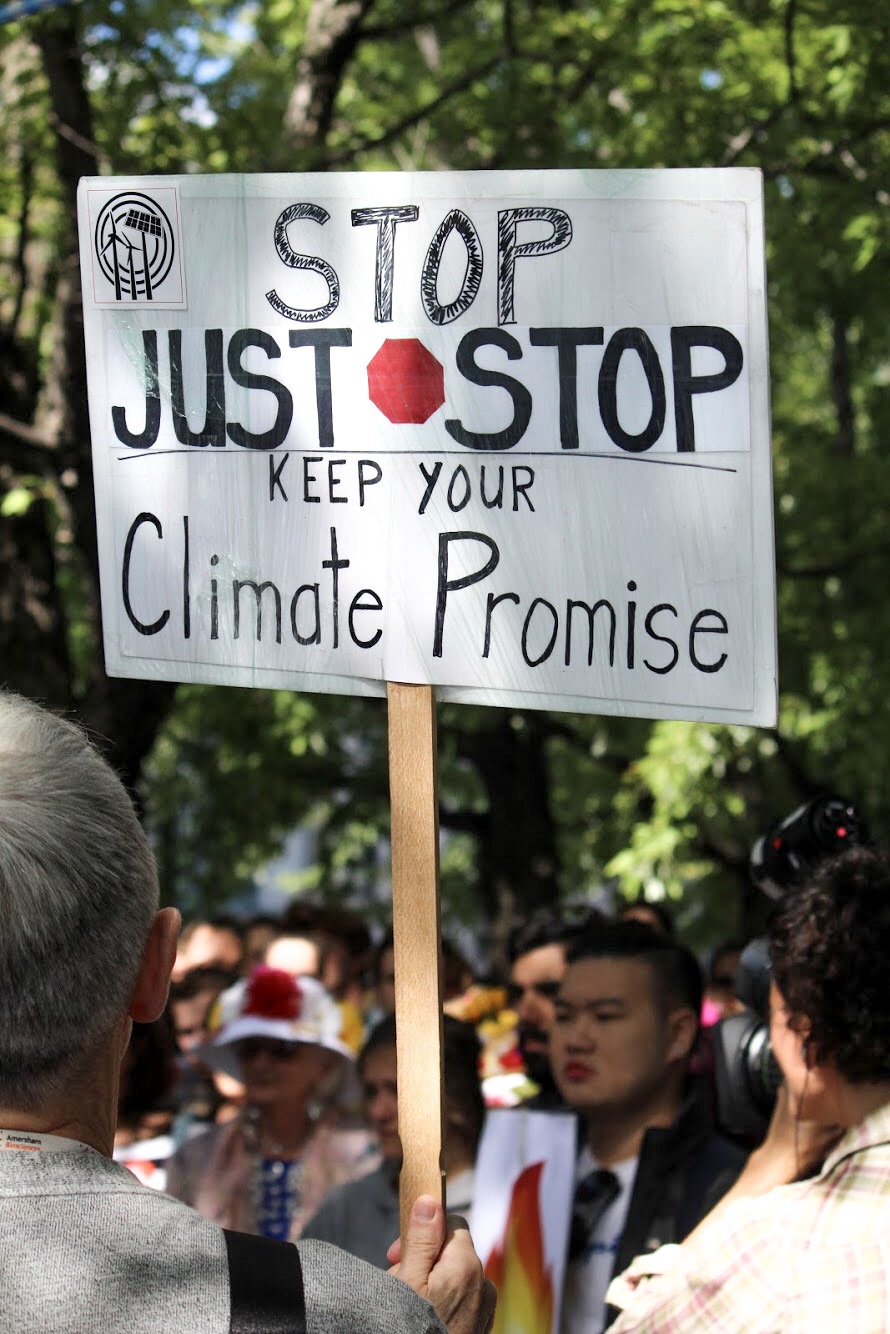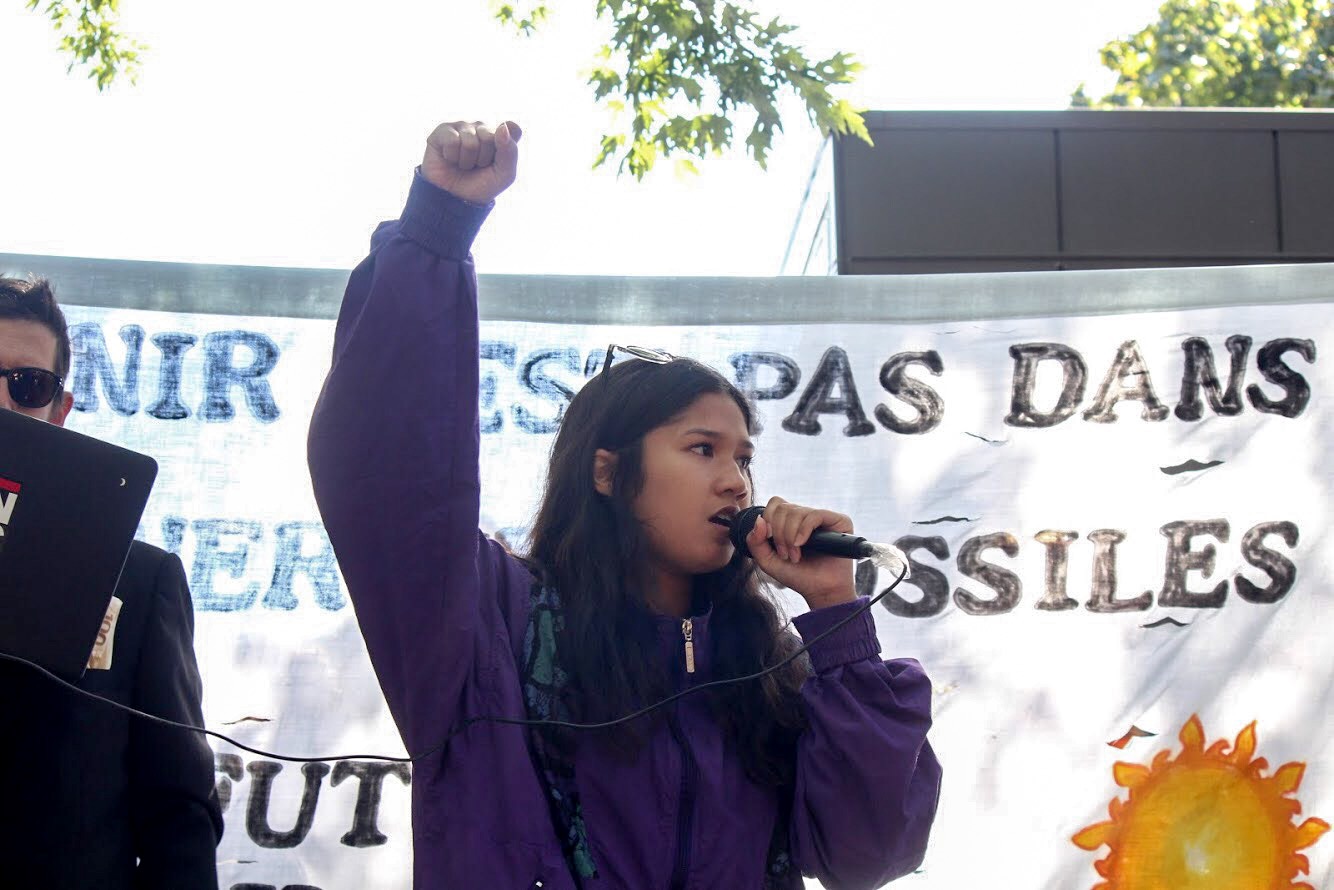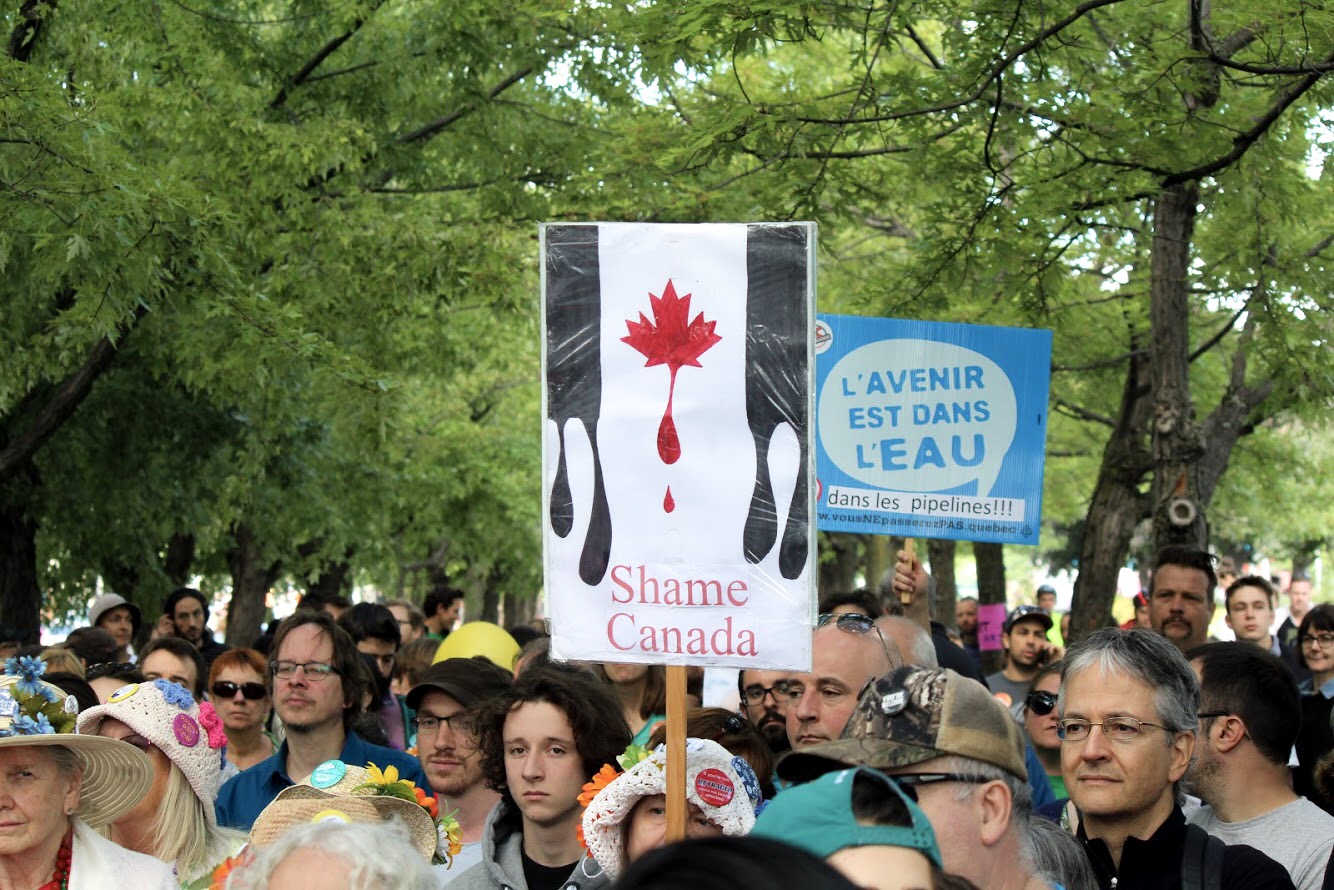Action against climate change and divestment is needed, now.
With signs held high and voices ringing clear above the blaring traffic on Commune St. E. in the Old Port on Saturday Sept. 8, more than 200 protesters united against the climate change crisis. Rise for Climate was supported by non-profit organization 350 Canada, in collaboration with a handful of local grassroots initiatives such as Leap Montreal, Rap Battles for Social Justice (RB4SJ) and the Montreal Raging Grannies. The gathering was one of more than 900 rallies simultaneously taking place across 95 countries worldwide, all demanding divestment from fossil fuel industries, among other things.

“We’ve already passed the point of no return,” said Sally Livingston, a Concordia alumna and member of the Montreal chapter of the Council of Canadians. “We do not want our tax dollars going to any more fossil fuel investments.” Toward the end of August, according to Global News, the Federal Court of Appeal quashed the Trans Mountain Pipeline plans due to insufficient consultations with Indigenous communities. However, according to the same article, Trudeau has not yet ruled out appealing the court’s decision, and “is maintaining that it will get built.”
“The fact that [the federal government] is pushing the Trans Mountain Pipeline through […] shows us that they haven’t changed their ways,” explained Nicolas Chevalier, one of the founding activists of the non-hierarchical organization Leap Montreal. “They don’t understand what it means to be in a climate crisis.”
“I think the Kinder Morgan Pipeline is totally retrogressive,” said Carole, a protester. There are three things Trudeau has shown us by spearheading this project, she explained: “He has broken his primary election promise, he has ignored consensus, and he is going backwards – just like Mr. Trump.”
Rise for Climate was attended by people from all walks of life: activists from various backgrounds, patrons, both young and old, families with children—all united as a community trying to salvage this planet we call home.
“The same system (capitalism) that drives climate change is the same system that drives inequality,” said Bianca Mugyenyi, a member of Leap Montreal. “At the end of the day, we want to do more than just avoid catastrophic climate change,” she said. “We want better lives.”
But the window for avoiding catastrophic climate change is quickly closing; we are and will continue to experience the effects of rising global temperatures throughout our lifetimes, albeit with regional variances. During a press conference on March 29, Amina J. Mohammed, secretary-general of the United Nations, explained that, unless accelerated action against climate change is adopted by 2020, the 2016 Paris Agreement goals will become unattainable. According to the 350 Canada website, 97 per cent of scientists agree that climate change is caused by human greenhouse gas emission. “So then why do our politicians keep making the wrong decisions?” asked Mugyenyi. “They’re moving in the wrong direction.”

Capitalism benefits from the existence of systemic oppression: from racism, from sexism, from violence against Indigenous communities. Capitalism is rooted in the mass exploitation of resources, and exponentially increasing profit margins somehow justifies the further exploitation of those resources and the political violence directed to already marginalized communities.
“Indigenous women and girls are three times more likely to experience violence, and six times more likely to be murdered than non-Indigenous women,” said Beatrice Dimaculangan, an activist, rapper and community organizer with RB4SJ.
“When Indigenous girls are trafficked into sex trade […] where is left for these girls to turn to when the very system meant to protect them proceeds to exploit and neglect them?” Dimaculangan held back tears as the power of her voice kept the crowd locked in to her every word. “These women are not solely victims of violence, but also of a justice system that doesn’t seem to give a shit about them.”
We have a responsibility—as Canadians, as allies, as human beings—to speak up. Not after the next major environmental catastrophe; not after coastal cities are completely underwater; not after the next oil spill wreaks havoc on another Indigenous community. The time for change is now. “The science is indisputable,” said Mugyenyi. “Enough is enough.”
Feature photo by Alex Hutchins




